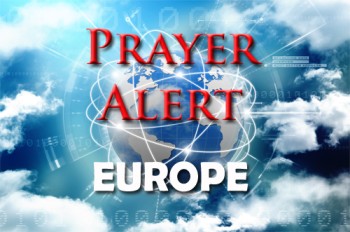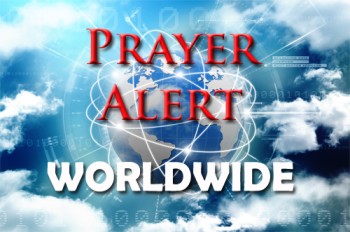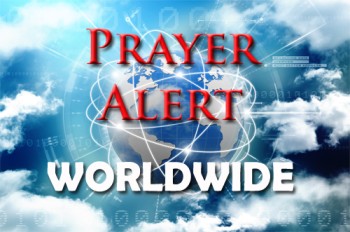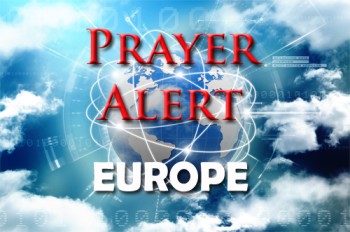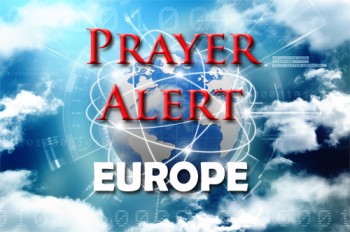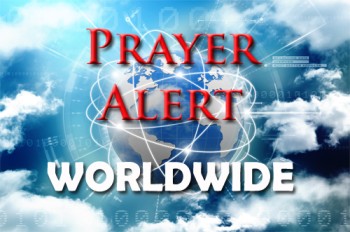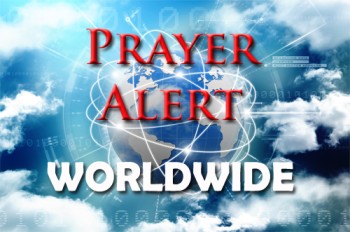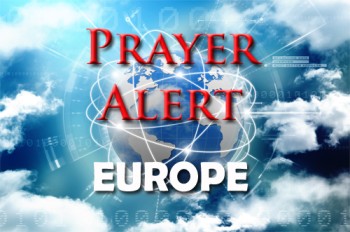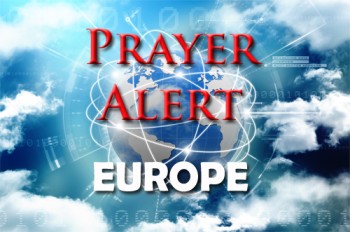Displaying items by tag: Corruption
North Macedonia: protests after 59 die in nightclub fire
North Macedonia is in mourning after a devastating nightclub fire in Kočani killed 59 people, most of them young. As grief turns to anger, thousands have taken to the streets demanding justice and an end to corruption. The nightclub, Pulse, was found to have been operating illegally with an invalid licence obtained through bribery. Safety violations, including a lack of fire exits, an inflammable ceiling, and no fire alarm, contributed to the disaster; there might have been 1,500 in the venue, which had an official capacity of 250. Many victims perished in the crush as they tried to escape. Authorities have detained twenty individuals, including a former economy minister and state officials. The government has declared seven days of mourning, while protests continue across the country, pressuring officials to address corruption. Prime minister Hristijan Mickoski vowed swift justice, calling the situation ‘shocking’. Continuing protests are putting further pressure on the government to stop the corruption which has now cost the 1.8-million strong nation so many young lives.
Mozambique: crucial election
On 9 October, 17 million Mozambicans voted for a new president who many hope will bring peace to the oil- and gas-rich Cabo Delgado province, which has faced a jihadist insurgency since 2017. Over 1.3 million people have been displaced due to violence, with 600,000 returning to destroyed homes. The presidential candidates, including Frelimo’s Daniel Chapo, Lutero Simango of the Democratic Movement, and independent Venacio Mondlane, have promised to prioritise peace and rebuilding. Chapo has pledged to end terrorism and rebuild infrastructure, while Simango has focussed on addressing unemployment, poverty, and healthcare. Mondlane has promised to eradicate terrorism within a year. Frelimo is expected to win again, despite wide-ranging allegations of electoral fraud in last year’s local elections;it also has been tainted by corruption scandals, with politicians jailed for taking payoffs to favour government-controlled fishing companies. The country is also facing severe food shortages as a result of a long drought: the UN says that 1.3 million people are affected.
Kenya: IMF invited to audit corruption and governance issues
Kenya has officially requested the International Monetary Fund (IMF) to conduct a comprehensive review of its corruption and governance challenges. Cabinet secretary Musalia Mudavadi said that this will help the government address corruption, a persistent issue negatively impacting the economy and the livelihoods of Kenyans. President William Ruto, who has been facing pressure from widespread protests over high living costs, pledged in July to amend laws aimed at closing loopholes which enable corruption. He wants to focus on holding corrupt officials accountable, reducing government wastage, and curbing opulence among leaders. The IMF's review, which will encompass all government ministries and institutions, aligns with its previous calls for Kenya to address these challenges. Kenya hopes this effort will also secure delayed financial assistance from the IMF, crucial for its 2024/2025 budget.
Ukraine winning its other battle - against corruption
Since gaining independence in 1991, Ukraine has struggled with endemic corruption, a battle seen as crucial for its war against Russia. Transparency International now ranks it 104th out of 180 countries, its highest position since 2006. Recent developments have been the arrests of supreme court head Vsevolod Knyazev, agriculture minister Mykola Solsky, and SBU officer Artem Shylo, though all deny wrongdoing and are out on bail. A pivotal development was the 2015 launch of Prozorro, a digital platform which reduced corruption in government procurement, saving nearly $6 billion in four years. With substantial Western aid flowing in, ensuring proper control is critical. Corruption has not only drained resources but also hindered foreign aid and military recruitment (many Ukrainians have bribed their way out of the country to avoid conscription). Last year, Volodymyr Zelensky dismissed regional conscription officials amid bribery scandals.
Russia: minister arrested on charges of taking bribes
A deputy defence minister, Timur Ivanov, has been detained in Moscow, accused of accepting large-scale bribes. Ivanov, who denies the charges, has been overseeing military infrastructure projects since his appointment in 2016. There have been few such high-profile cases since the invasion of Ukraine. Ivanov, an ally of defence minister Sergei Shoigu, faces serious charges. Reports link him to profiting from construction schemes in occupied Ukrainian territories, particularly in Mariupol. A court has remanded him and a friend, Sergei Borodin, for two months. His detention signifies a significant move against Russia's elite, who are often accused of using their positions to amass vast fortunes. It may also impact Shoigu's standing, as Ivanov (described by the USA and UK as ‘tenth in the overall hierarchy of the Russian military leadership’) is seen as his close associate.
Vietnam: president’s shock resignation
In what has been described as a ‘political earthquake’, Vietnam's president Vo Van Thuong resigned on 20 March, after allegations of corruption which have tarnished the Communist party's image. He was the youngest president in modern history, and regarded as a protégé of party chief Nguyen Phu Trong. Vice president Vo Thi Anh Xuan will act as interim president, but analysts think that a permanent candidate is unlikely to be selected soon. There will be a ‘very complicated’ succession process within the party that may last until the national congress in 2026, when the successor to Trong, Vietnam’s most powerful politician, will be determined. Concerns about his health mean the largely ceremonial position of the president is crucial. There are growing concerns among foreign investors about political instability in the country, which is a growing manufacturing hub and sits at the middle of the competition between China and the USA for global influence.
Pakistan: not one but two jail sentences for Imran Khan
On 31 January Imran Khan and his wife Bushra Bibi were sentenced to 14 years in prison for illegally profiting from state gifts. The court also imposed a fine of approximately £4.2 million on the couple and barred him from holding public office for ten years. On the previous day he and the vice-chairman of PTI, his political party, were given a ten-year sentence for leaking classified state documents. https://www.bbc.co.uk/news/world-asia-68138591 These convictions come just a week before a general election in which he is disqualified from participating. The sentences are expected to run concurrently, but this has not been officially confirmed. Khan's legal team plans to appeal the rulings in the High Court. He has been in jail since August; Bushra Bibi, who had been out on remand, surrendered herself at the jail. The charges revolve around allegations (which they strongly deny) that they sold or kept state gifts received during their time in office including a jewelry set from the Crown Prince of Saudi Arabia. See also last week’s article.
Guatemala / Ecuador: voting to end corruption?
Elections in Guatemala and Ecuador are a test of democracy as both have a climate of corruption, tension and violence in politics. In Guatemala’s election on 20 August, anti-corruption candidate Bernardo Arévalo won, despite Guatemala’s court recently ordering his political party into suspension, triggering massive protests and unrest. He denounced the police raid that followed, stating it was an act of ‘political persecution’. Also on 20 August Ecuador voted for a president. Rampant crime blamed on drug gangs, a struggling economy, and a rise in unemployment and migration are the top concerns of voters. The candidate standing against corruption and organised crime was assassinated on 9 August. There was no outright winner on the 20th. The runoff will be on 15 October, between leftist candidate Luisa Gonzalez and businessman politician Daniel Noboa. Noboa wants to implement harsh policies in relation to crime, and talks about security, which appeals to those unhappy with the current political system.
Ukraine: corruption = high treason
Thirty conscription officials in Ukraine have been accused of taking cash and cryptocurrency bribes to smuggle people out of the country. All men over the age of 18 capable of fighting are eligible to be conscripted, and most adult men under the age of 60 are prohibited from leaving the country. Mr Zelensky posted a video on social media saying, ‘Conscription officials who took bribes and smuggled people out of the country have been sacked in an anti-corruption purge. Bribery at a time of war is high treason’. The president's office said that the corruption allegations pose a threat to Ukraine's national security and undermine confidence in state institutions. Replacement officials will be chosen from candidates with battlefield experience and vetted by the intelligence service.
France: money-laundering in real estate
New in-depth analysis found unacceptable levels of money laundering risks in French real estate, despite transparency measures. Non-compliance, incomplete data, and loopholes are creating a brick wall for attempts to follow flows of dirty money into real estate. Six years after France began collecting information on the beneficial owners of companies, almost a third of legal entities have failed to comply. Consequently over 7.33 million parcels of land, which could contain one or multiple properties, are anonymously held. There is a dead end for efforts to follow the money of white-collar criminals, kleptocrats and sanctioned elites into French real estate, which is known to be a favoured destination for corrupt cash. Over 1.5 million registered entities have not yet declared who ultimately owns and benefits from them.
